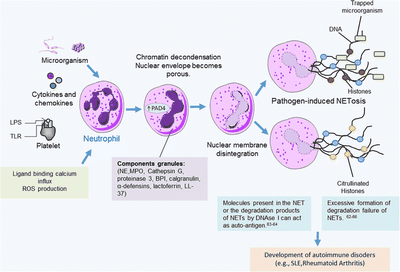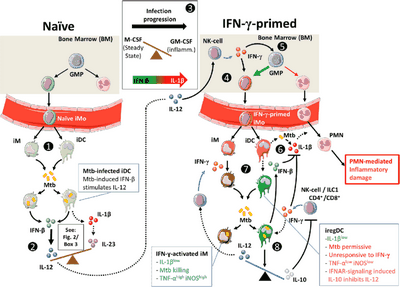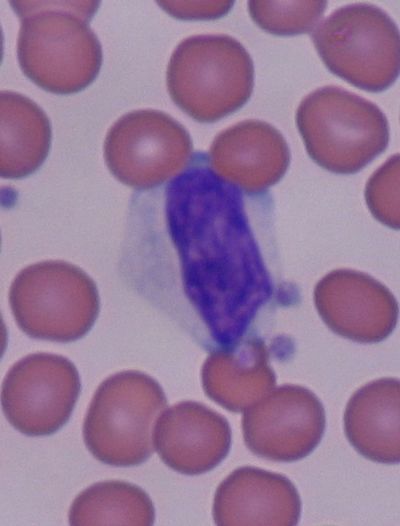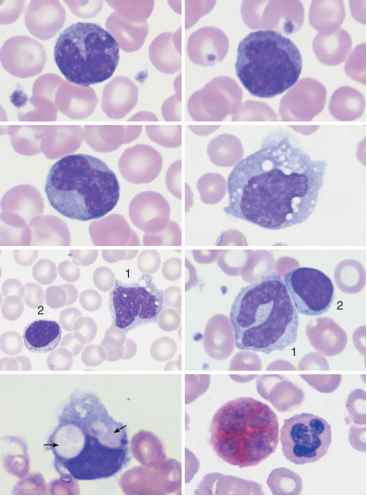Monocytes, which are a special kind of white blood cell, are one of the first cells to be triggered by a specific infection or injury.

Monocytes can distinguish into myeloid lineage cells and macrophages, and are the biggest of all leukocytes.
Monocytes are also responsible for regulating the process of inflammatory response and as part of the innate immune response, monocytes also affect the activity of adaptive immune cells. They also play an important role in the regulation of T-cell response and T-cell maintenance. They can also stimulate the proliferation of T-cells, but at the same time they can prevent them from being produced.
Monocytes have a central role in the regulation of autoimmunity and autoimmune diseases. They can also affect the development of tumors. They can either help to fight against cancer or they can promote the growth of cancer cells.
Monocytes can also cause many problems with the immune function of the immune system.

These problems can range from mild to serious and include: decreased protective effect of other immune cells; decreased number of T-cells; increased proliferation of T-cells; increased activity of pro-inflammatory cytokines; loss of memory; and increased susceptibility to viral and fungal infections. Monocytes can also induce autoimmune responses, causing the activation of auto-immune genes which is called an auto-immune reaction.
Monocytes can also affect the production and functioning of organs such as the skin and lymph nodes. When monocytes fail to function properly, these organs may become damaged and fail to recover fully.
Monocytes can be responsible for the development of Chronic Fatigue Syndrome (CFS). Monocytes may contribute to the formation of T-cells and other inflammatory cells in the system. This causes symptoms including fatigue, muscle cramps, headaches, and loss of sleep. The accumulation of monocytes within the brain can also cause memory problems, irritability, and depression.
In autoimmune disease states, monocytes produce cytokines and chemicals called immunoglobulin M that can interfere with the production and function of cells in the body.

These chemicals can cause inflammation and damage the internal functions of the body.
Autoimmune diseases are caused by a variety of different factors. Monocyte stimulation is usually the result of an autoimmune reaction to a specific antigen. However, some auto-immune diseases are also the result of autoimmune reactions to specific bacteria or viruses.
If your body cannot process certain proteins that are important in auto-immune disease, monocytes can form antibodies to fight off the invaders. These antibodies can then reactivate the immune system’s innate immunity mechanism to attack the invaders again.
If the auto-immune reaction to an antigen is so severe that your body produces antibodies against it, there may be no need for your immune system to create antibodies to fight off foreign invaders. That means that the body will not need any additional immune defenses. Other types of auto-immune diseases include: HIV/AIDS; Lupus; systemic sclerosis; Crohn’s Disease; autoimmune hepatitis; rheumatoid arthritis; Lupus erythematosus; and various types of cancers.
Monocytes stimulate auto-immune diseases by reducing the activity of the Th1 and Th2 cells in the body.

When monocytes fail to respond to signals that the Th1 and Th2 cells have developed the Th1 cells to fight off infection and kill invading micro-organisms.
Some examples of the effects of monocyte stimulation include: autoimmune responses, activation of auto-immune genes, inflammation, activation of anti-inflammatory genes, autoimmune reactions, autoimmune reactions, and the production of anti-tissue toxins. In autoimmune diseases, these factors can cause the activation of genes that can lead to the activation of autoimmune pathways that can lead to the activation of inflammatory pathways. The effects of monocytes are not always reversible.
Monocytes can also contribute to the progression of autoimmune conditions when monocyte-stimulated monocytes prevent the production of interferons in the immune system. Interferons are molecules that activate the cells to produce a series of molecules that help with the production of the immune system’s natural killer cells. Antibodies are then produced to neutralize the invading pathogens and the invaders. Monocytes can also contribute to the production of anti-inflammatory cytokines, which can interfere with the body’s ability to effectively fight off the invading pathogens.